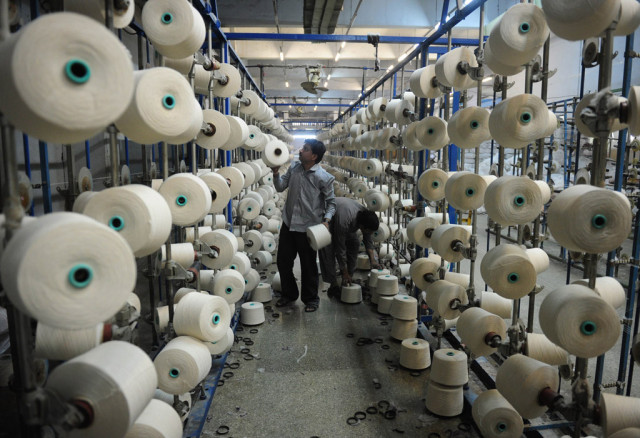IBA to undertake research on Pakistan, India textile sector
APTMA, World Bank to sponsor the project .

The Pakistani textile industry has to be more efficient in meeting challenges of the future regional integration in South Asia, Institute of Business Administration (IBA) Dean and Director Dr Ishrat Husain said on Friday.
He was speaking at the pre-launch event of a research study that IBA will conduct under the regional competitiveness initiative on trade between Pakistan and India in the textile and clothing industry.
“Pakistan produces some of the finest textile products and there is a huge demand for it within the region,” said Hussian. “We just have to improve our efficiency and the quality of some of our products to increase our market share in regional countries.”
All Pakistan Textile Mills Association (Aptma) and the World Bank will sponsor the research project. The team consists of prominent economists and experts on the textile sector and from the field of international trade.
The purpose of the research project is to comprehensively study the textile value chain within Pakistan and India. It will identify potential synergies, prospects for growth, benefits to the economy and challenges faced by businesses and policymakers on trade between Pakistan with India.
Husain said that IBA is conducting this research work in the national interest of Pakistan.
IBA enjoys recognition and the trust of Pakistan’s policymakers, which is why the Pakistani government adopted the negative list study that IBA conducted in the past. “I request stakeholders in the Pakistani textile industry to provide accurate data because the study is most probably going to become the official policy of the government,” he stressed.
“Today, Pakistan stands at a crossroad as it is slowly becoming uncompetitive,” said Gul Ahmed Textiles Mills Chairman Mohammed Bashir while speaking to the audience.
“We have to move from producing raw materials to the final stage of garment manufacturing. One of the most important reasons for that is that garment manufacturing consumes only 1% of electricity compared to 30% of power used in the spinning process.
“Another very important factor is that the garment industry gives the highest number of employment opportunities which is something the country desperately needs at this point in time,” he added.
Published in The Express Tribune, November 1st, 2014.
Like Business on Facebook, follow @TribuneBiz on Twitter to stay informed and join in the conversation.



















COMMENTS
Comments are moderated and generally will be posted if they are on-topic and not abusive.
For more information, please see our Comments FAQ